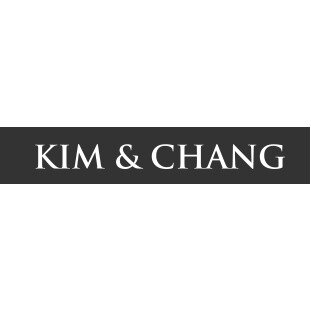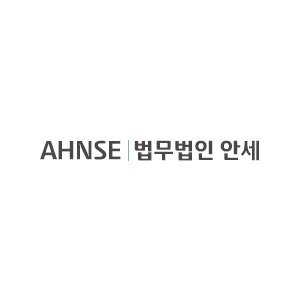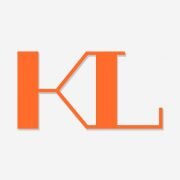Best Renewable & Alternative Energy Lawyers in South Korea
Share your needs with us, get contacted by law firms.
Free. Takes 2 min.
Or refine your search by selecting a city:
List of the best lawyers in South Korea
About Renewable & Alternative Energy Law in South Korea
Renewable and alternative energy has become a significant focus in South Korea's national energy policy. As the country aims to reduce its reliance on fossil fuels and meet international climate commitments, it actively promotes the development and adoption of clean energy sources such as solar, wind, geothermal, biomass, and hydropower. The legal framework around renewable and alternative energy is dynamic and complex, addressing a wide range of issues including project approvals, subsidies, licensing, environmental standards, grid access, and investment incentives. Both domestic and foreign businesses, as well as individuals looking to develop, invest in, or use renewable energy solutions, must navigate these laws to ensure compliance and seize opportunities.
Why You May Need a Lawyer
Legal advice is often crucial when dealing with renewable and alternative energy in South Korea. Some common situations that may require legal expertise include:
- Obtaining permits and licenses for building or operating renewable energy installations
- Compliance with local and national environmental standards and regulations
- Negotiating land use and property rights for energy projects
- Understanding and applying for government subsidies or incentives
- Structuring joint ventures and managing contracts with local partners
- Resolving disputes related to energy production, grid access, or intellectual property rights
- Navigating the import and export regulations for energy equipment and technologies
Whether you are a business, investor, or community organization, having a lawyer can help you understand complex regulations, reduce project risks, and protect your interests.
Local Laws Overview
South Korea's regulatory framework for renewable energy is shaped by national policy objectives, international agreements, and evolving technology. Key legal aspects include:
- Renewable Portfolio Standard (RPS): Electricity suppliers must meet minimum renewable energy production requirements.
- Feed-in Tariffs (FIT): The FIT program has been replaced by the RPS, but some long-term contracts under FIT still exist.
- Licensing and Permits: Projects often require multiple permits from environmental, local, and grid authorities. Environmental Impact Assessments (EIAs) are mandatory for certain project sizes and types.
- Incentives and Subsidies: The government offers grants, tax benefits, and financing for renewable energy projects, with specific rules for eligibility and application.
- Grid Access: Legal provisions ensure fair access to the grid for renewable energy producers, though connection procedures can be complex.
- Land Use: Projects must comply with zoning, agricultural land conversion, and other local development regulations.
- Foreign Investment: There are regulations regarding foreign ownership and participation in the energy sector.
Keeping up with legislative changes and enforcement trends is essential, as South Korea regularly updates its energy and environmental policies.
Frequently Asked Questions
What types of renewable energy are promoted in South Korea?
The government supports the development of solar, wind (onshore and offshore), biomass, geothermal, hydroelectric, and waste-to-energy projects.
Who regulates renewable energy projects in South Korea?
The Ministry of Trade, Industry and Energy (MOTIE) is the main regulator, but local governments, the Korea Energy Agency, and the Korea Electric Power Corporation (KEPCO) are also involved, depending on the project scope and location.
Are there financial incentives for renewable energy businesses?
Yes. South Korea offers grants, low-interest loans, tax benefits, and support for RPS certificates. Eligibility and application requirements vary by program.
What permits are required for solar or wind projects?
You typically need environmental approvals, construction permits, and grid connection agreements. Projects on agricultural or protected land may require special approvals.
How can foreign companies invest in South Korea's renewable energy sector?
Foreign investment is permitted and encouraged, but may be subject to specific reporting, ownership limitations, and review under the Foreign Investment Promotion Act.
Is it possible to sell renewable energy to the Korean grid?
Yes. Qualified producers can sell electricity to the national grid, subject to technical standards and through purchase agreements, often under the RPS.
What are the main environmental considerations?
Environmental Impact Assessments are required for larger projects. Compliance with wildlife, noise, land, and water use regulations is also necessary.
What happens if a project does not comply with regulations?
Noncompliance may result in penalties, revocation of permits, suspension of operations, or legal claims from affected parties.
Can individuals install small-scale renewable energy systems at home?
Yes, homeowners can install rooftop solar or small wind systems, but must follow building codes, safety standards, and if selling power back to the grid, register with their utility provider.
How are disputes in renewable energy projects resolved?
Disputes are typically resolved through negotiation, mediation, or the court system. Some contracts specify arbitration as the preferred method of dispute resolution.
Additional Resources
If you require more information or support, the following resources can be helpful:
- Ministry of Trade, Industry and Energy (MOTIE)
- Korea Energy Agency
- Korea Electric Power Corporation (KEPCO)
- Korea Renewable Energy Association
- Local environmental and energy offices
- Embassies and foreign chambers of commerce for international investors
Next Steps
If you believe you need legal assistance for renewable or alternative energy projects in South Korea, consider these steps:
- Identify the specific area of your project or issue that requires legal guidance, such as permits, contracts, or regulatory compliance.
- Gather all relevant documentation, such as project proposals, contracts, correspondence with authorities, and any notices received.
- Contact a reputable law firm or attorney with experience in South Korea’s energy sector. Choose professionals who are familiar with both local regulations and the renewable energy market.
- Consult with your legal adviser to assess risks, determine compliance requirements, and develop a strategy that aligns with your business objectives or personal goals.
- Keep abreast of policy changes and legal developments that could impact your project or investment.
Starting early with expert legal assistance will help you navigate regulatory complexities, secure project approvals, and protect your financial and legal interests in South Korea’s evolving renewable and alternative energy landscape.
Lawzana helps you find the best lawyers and law firms in South Korea through a curated and pre-screened list of qualified legal professionals. Our platform offers rankings and detailed profiles of attorneys and law firms, allowing you to compare based on practice areas, including Renewable & Alternative Energy, experience, and client feedback.
Each profile includes a description of the firm's areas of practice, client reviews, team members and partners, year of establishment, spoken languages, office locations, contact information, social media presence, and any published articles or resources. Most firms on our platform speak English and are experienced in both local and international legal matters.
Get a quote from top-rated law firms in South Korea — quickly, securely, and without unnecessary hassle.
Disclaimer:
The information provided on this page is for general informational purposes only and does not constitute legal advice. While we strive to ensure the accuracy and relevance of the content, legal information may change over time, and interpretations of the law can vary. You should always consult with a qualified legal professional for advice specific to your situation.
We disclaim all liability for actions taken or not taken based on the content of this page. If you believe any information is incorrect or outdated, please contact us, and we will review and update it where appropriate.
Browse renewable & alternative energy law firms by city in South Korea
Refine your search by selecting a city.
















